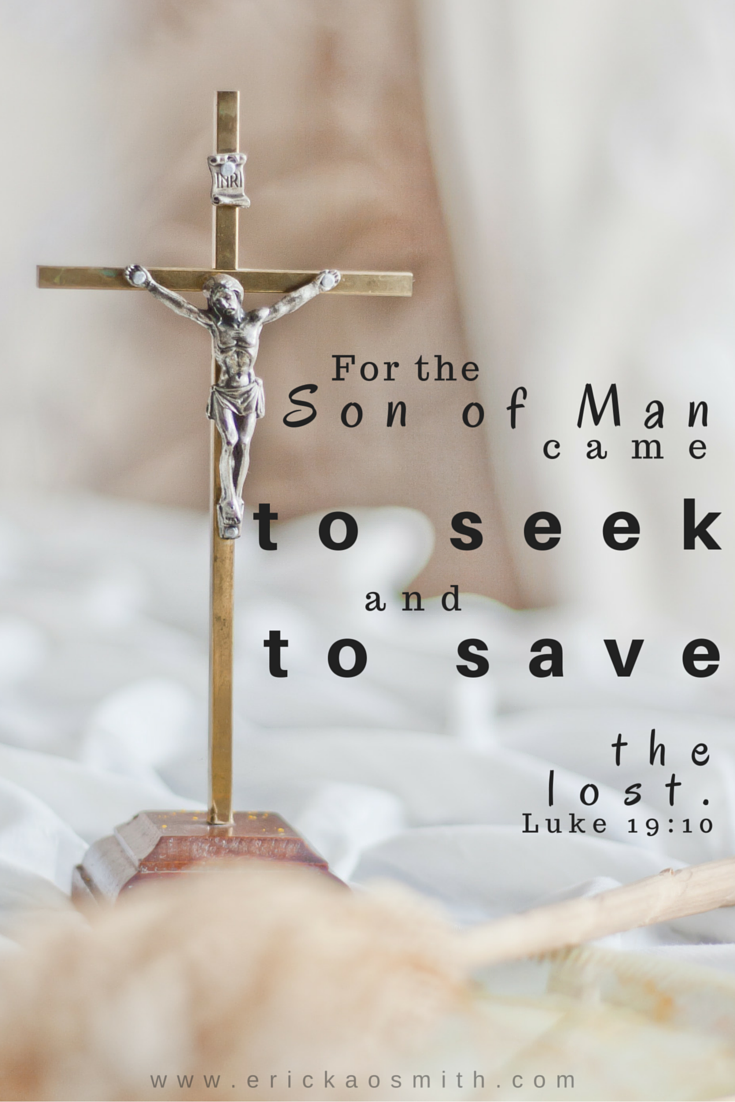
Want more Good News? Go here.
Making Memories Meaningful
As the accuser, the enemy of my soul is continually at work chipping away at my identity in Christ. He accuses me of how I never change; how wretched I am; how far I fall short…and he is right – I am and I do!
My performance, however, doesn’t make God’s Word about me, His love for me or what He has done on my behalf more or less powerful. It isn’t based on ME – my ability to live up to a standard, to do “this or that,” to achieve a certain level of performance or perfection. He came to seek and to save the lost! And I qualify!
THIS is Good News!
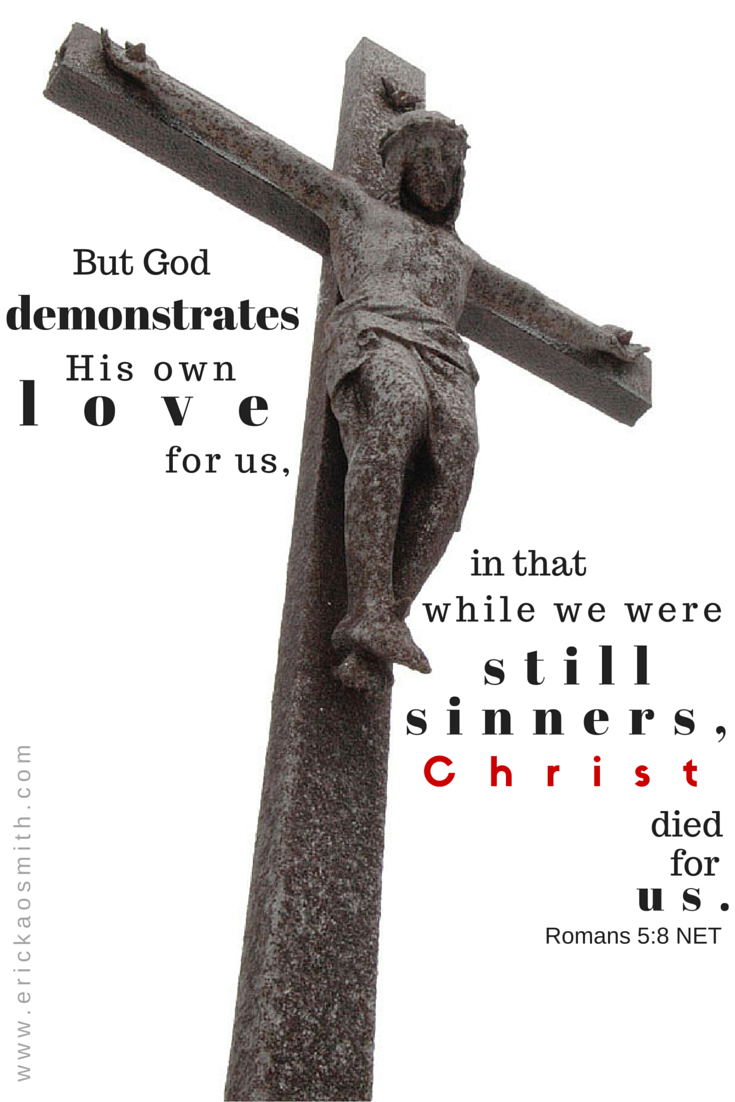

Read: Luke 1:26-38
Mary had plans. She was engaged to be married. Her man was stable, respectable and dependable. She was soon to embark on the next season of her life. You can almost hear her whistling while she cheerfully went about her work, maybe even daydreaming about the day she would soon become Mrs. Joseph. {contented sigh}
In a moment, Mary’s dreamy plans were altered. She was to be the mother of God’s Son, not Joseph’s. She was to name him Jesus, not whatever name had tickled her fancy growing up. He was going to go into His Father’s business, not the family business. And God was going to bring this about in a supernatural way, not by implementing the natural order of things.
Mary’s plans changed, her life altered course, not because of something she had done, but because she had found favor with God. Her reaction?
“Mary responded, ‘I am the Lord’s servant. May everything you have said about me come true.’ ”
As you walk through this first week in December, think about Mary’s response. Really ponder her words in the context of your own life and circumstances – in rush hour traffic, at the grocery store, in that important meeting, during the school play, at the library, while making dinner, at the neighborhood Christmas party. What is your response when life throws you a curveball? How do you react when your plans are frustrated? Is your knee-jerk reaction, “I am the Lord’s servant. May everything you have said about me come true.”

I’m just going to go ahead and admit that I’ve never given Mary Magdalene a second thought. If I met her as a kid, I don’t remember it. If we were introduced sometime in college, I’ve forgotten. The truth is that, for me, Mary Magdalene always got lost amid the throng of other Marys in the Bible.
Recently that all changed and I confess that I’m glad I took the time to get to know her more personally. I found Mary Magdalene to be someone perfectly content to live in the background, serving in the shadows of the spotlights cast by her friends. (Truthfully, this is the first thing we connected over as I feel most comfortable serving behind-the-scenes, as well.) As Mary shared her story with me, I perceived a deep level of loyalty to those she called friend – a trait I value highly in my own friends. By the end of our week together, we wept with one another over the loss of loved ones that were so dear to our hearts that it felt like just breathing was an effort. We connected over the intense need we felt to do something for those we’d lost in the wake of their deaths.
Truthfully, I feel I have found a real gem of a friend in Mary Magdalene, a real kindred spirit and soul sister.
And I invite you to get to know her, as well.

Naomi is one of those women that you know of, but have never really known. Because of her more famous daughter-in-love Ruth, the spotlight has always just missed her. About three years ago at a Women’s Bible Study, that all changed for me. I connected with Naomi over the fact that we had both endured the unspeakable – the burial of our children. This is a club few are in and none want to belong to; when you come across other members, you tend to gravitate toward them. That semester was eye-opening for me as Naomi (with Ruth) shared her heart, hurts, and healing with our group.
I reconnected with Naomi last summer for a week and I learned even more from this wonderfully pleasant woman of God. Through her losses, Naomi remained rooted in the knowledge that God is sovereign. She is the first to confess that her losses weren’t easy to endure. (She actually renamed herself “Mara” for a time, which translates bitter.) Her grief was often ugly! Her faith in His sovereignty wasn’t rooted in her feelings, however, as mine tend to be. For Naomi, His sovereign control was a firm & unwavering fact. She knew (with the great Patriarch of her faith, Job) that God gives and God takes away. He is sovereign in the giving and He is still sovereign in the taking away.
The Lord gave, and the Lord has taken away. Blessed be the name of the Lord.” Job 1:21 (NASB)
I invite you to spend some time with Naomi this week. She is a woman who has journeyed through the valley of the shadow of death many times. Because of that, she is uniquely qualified to lead you as you learn to trust in His sovereignty through your own valleys.
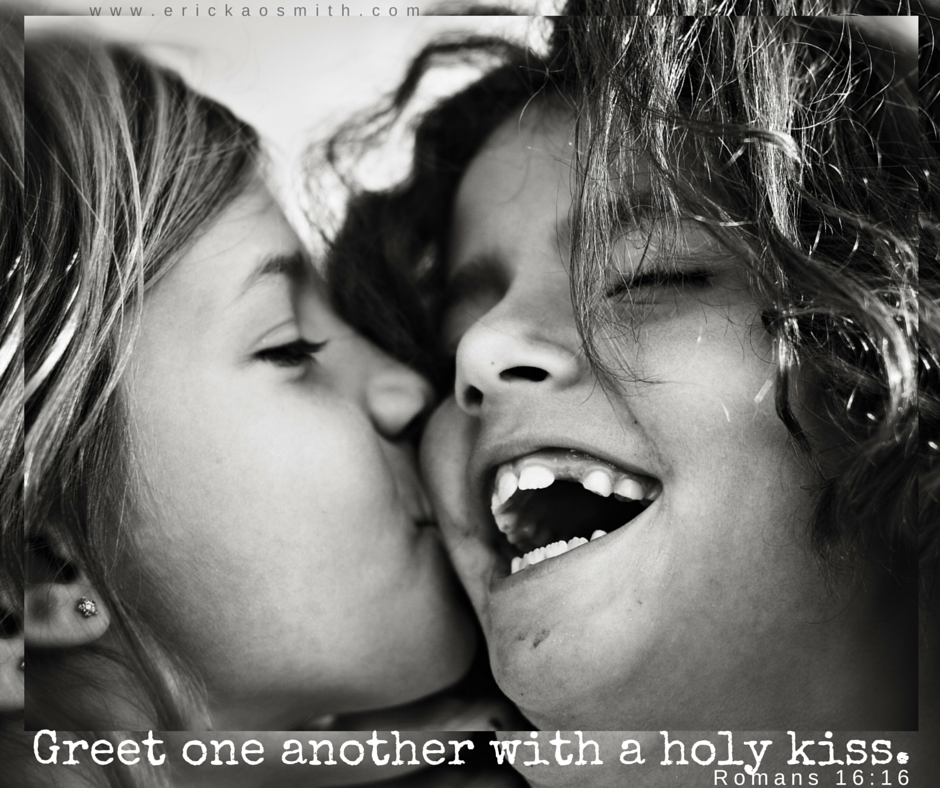
Before we moved overseas, we lived in the Southern US, which on the surface is a very friendly culture. We greet strangers and acquaintances with a “Hi, how are you?” You greet friends with a warm hug and a big smile and it’s great! But even at church we don’t just go around hugging everyone, right? We hug those that we love. Then we moved to Russia. There, it was different. People were not overly friendly, never greeted a stranger in the street, and I was usually grateful to be ignored. But in the conservative church, we kissed. On the lips. Men kissed men and women kissed women. Good times. Although at the time it was my least favorite part of church, looking back, I recognize that it was a very important part of fellowship. They took it seriously as a commandment and cheerfully (or not), kissed one another. A dry peck, and a quick hug if you were friends or a loving embrace if you were dear friends. They always made sure to greet every single person. In our youth group, there wasn’t as much kissing, but the girls hugged each other, and the guys shook each other’s hands, every single one. In a harsh culture, there was a comforting familiarity in that way of greeting each one. No one was left out of the greeting.
Now we live in a different country, in an even more traditional culture and, guess what. They kiss here, too. But it’s different. Here it’s the whole culture–not just the church–that is prone to kissing. Again, women-to-women, and it’s a kiss-kiss on the cheeks (left to right). It’s sweet, and all the while they are telling you how good it is to see you again and asking how you are, and how your family is and how your parents are. Even guys sometimes do a cheek-to-cheek thing that is not kissing, or a forehead bump, while clasping each other’s right hands. Every person in the room is greeted with a kiss or a handshake.
When we have people over, there is a ceremony of greeting and kissing that is not to be blown off casually. For instance, when guests come to our house for coffee, our whole family comes to the door, and we say, “It’s good that you came.” And their reply is, “It is good that we found you (at home).” If it is a man, I will shake his hand while we say this, and if it is a woman, we will be busy kissing each other’s cheeks, asking about the kids, if I’ve talked to my mom recently, if I’m tired (I’m supposed to be, because that means that I worked hard today, but I’m supposed to deny it). If we are really close, or it’s been a long time since we’ve seen each other, we will kiss each other’s cheeks more than twice and give each other a tight squeeze. (Hahaha! Some of you are cringing. It’s okay. Albanian women are awesome at making you feel greeted well.) While the women are kissing, the men are shaking hands and asking each other the same questions about their families (literally, “households”), work and whatever it is that men ask each other. After the greeting, the guests are either offered slippers, because Albanians do not wear their shoes in the house, or they are told to leave their shoes on because guests are special (or the floor is really cold and there are no guest slippers). Then they are led into the living room to sit, and the wife or daughter of the house brings a bowl of candy and serves each guest a sweet. This was traditionally llokume (Turkish Delight), but nowadays it is very often a chocolate. Then, coffee or juice is served to the guests. There are special customs regarding foods served and each region has their own, but the importance of it is the honor that they show their guests.
Because it’s such a traditional culture and everyone follows the same rules of greeting, they are used to it, but for those of us who have come from other places, it’s another opportunity to rethink the way we do things, especially those of us from the sometimes-too-casual West. Maybe in our Western churches holy kissing would be hard to reinstate as a scriptural mandate, but it would certainly make it easier for me, because when we go back to the US, it takes me two months to remember that no one there does the kiss-kiss thing. So embarrassing! Barring such a change, here are some things to think about. Do I honor the people who come to my home, to my church, to my social groups? Do I make them feel welcome, loved and accepted? How can I show love and honor to the people that I meet when I am out, especially those who are my brothers and sisters in Christ? Is there a way that I can reach out to those who might be on the lonely fringes, who need to a “holy kiss/handshake/hug”?
Meet Lorinda Fleming:

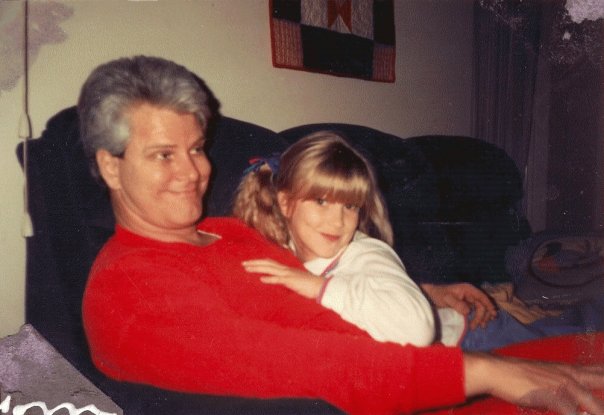
I was so little my daddy had to pull a chair up to the kitchen sink so I could stand on it, tippy-toed, to help wash the dishes. Actually, I’m pretty sure he had me rinsing dishes, as my untrained eye and the desire to rush through this chore almost surely would have resulted in not very clean dishes. Daddy was washing, I was rinsing.
Some of my earliest memories of family holidays are of my Daddy drawing my little brother and me to himself and telling us it was time to clean our Grandma’s kitchen. Not all that surprising was how resistant my brother and I were to this idea – downright resentful some times! But my dad, well, he always did it with a cheerful spirit, often whistling or humming a tune while cleaning up the holiday mess.
There are recurring moments that sprinkle through my childhood memories. Daddy washing up dishes at Grandma’s house. Daddy clearing people’s plates from the table at church functions so they could keep right on talking. Daddy staying until the lights were turned out and doors locked so he could help clean up after a party or event.
“Serve one another in love.” Galatians 5:13
Over the past 2 1/2 years I’ve been on the receiving end of my dad’s selfless service. Throughout two tough pregnancies and having new little ones of my own, my dad has stepped in to serve me in ways I never knew I needed. During my pregnancies he’d call on his way home from work (he drives by my house to go to and from work) to see if I needed anything on his way by. Whether it was delivering pregnancy cravings or taking out a mostly empty trash bag because super pregnancy nose was in full swing, he did it. And when my husband is out of town he stops by to help give baths and tuck in tots. Although that may be a little self serving since his my two year old loves seeing his Papa, and the feeling is quite mutual.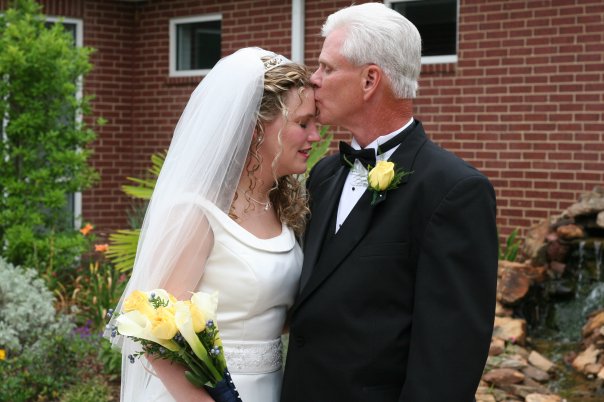
My dad has the heart of a servant. He serves others and models Christ in a way that makes the Gospel come to life right before your eyes, bringing to life the Scriptural admonition to serve one another in love. Of course as a kid I thought washing dishes at Grandma’s house was some sort of unusual punishment or penance required for enjoying a bountiful Christmas morning. As I grew up though, I realized that inasmuch as Daddy was teaching us to do dishes with a cheerful spirit (confession: I still wrestle with that), the more valuable lesson he modeled for us was that of selflessly and joyfully serving others.
“Have this mind among yourselves, which is yours in Christ Jesus, who, though he was in the form of God, did not count equality with God a thing to be grasped, but emptied himself, by taking the form of a servant, being born in the likeness of men.” Philippians 2:5-7
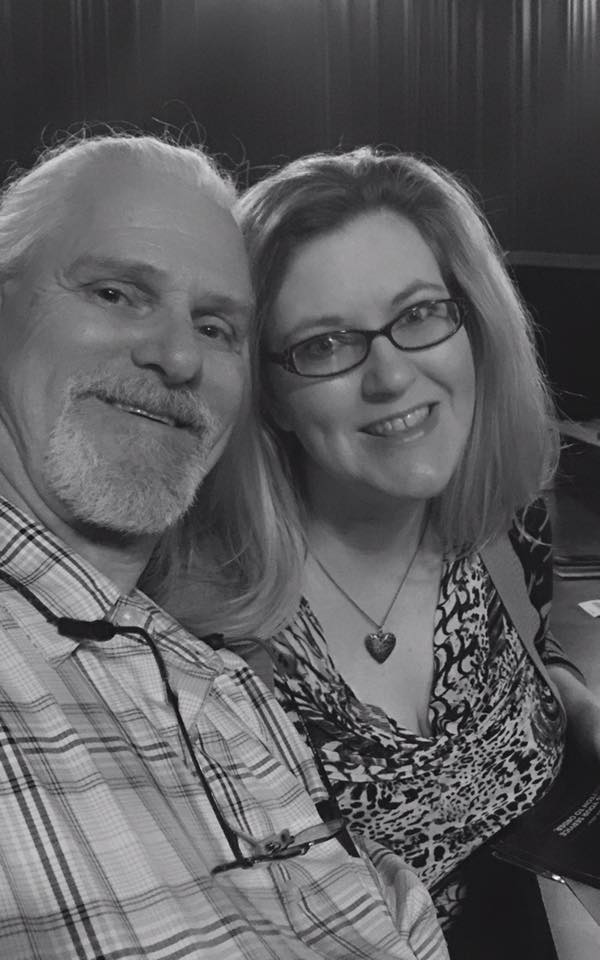

Have you ever realized how many of the verses in the Bible dealing with our personal growth and maturity in Christ involve direct interaction with other people, other sinners?
People can be annoying.
People can be chafing.
People can burrow under your skin with their insensibility.
Some can be so prickly that interaction with them is akin to hugging a hedgehog.
Amazingly, God has commanded us to live in community with other believers, to bear with the annoying, to be polished by the chafing, and to be changed by the process of living life with one another. That adds much needed perspective to those interactions that could otherwise provoke an emotional and divisive reaction. What if you could see such individuals as gifts from God sent for your sanctification instead of criticizing or avoiding them? What if you could actually THANK the prickly people for being avenues through which God chose to mature you?
PONDER: Think of the prickly people in your life. How could their annoyances be used to build your character? Thank God for providentially placing them in your life.
PRAYER: Father, thank You for the prickly people you have placed in my life. Thank you that through interaction with them, You are adding to my own character and molding me more like Jesus. Help me, Father, to truly appreciate them as avenues of my sanctification.
The Art of One Anothering is one of thirty devotionals I’ve been asked to write this year as part of a friend’s year-long devotional project. You can read more short devotionals like this by clicking here or the Devotionals tab at the top of this page.